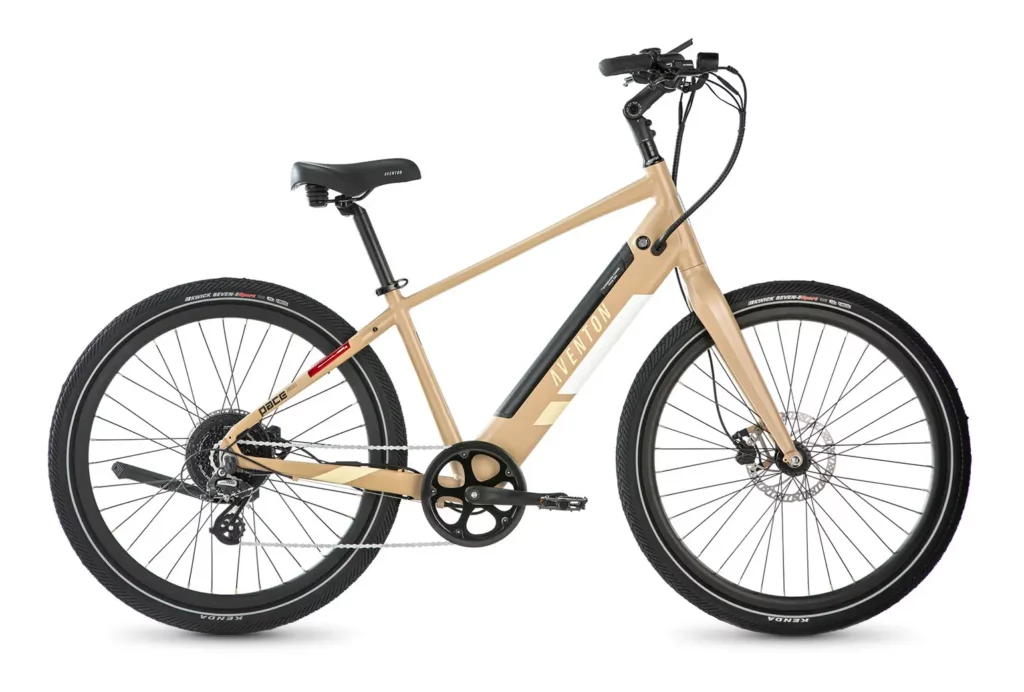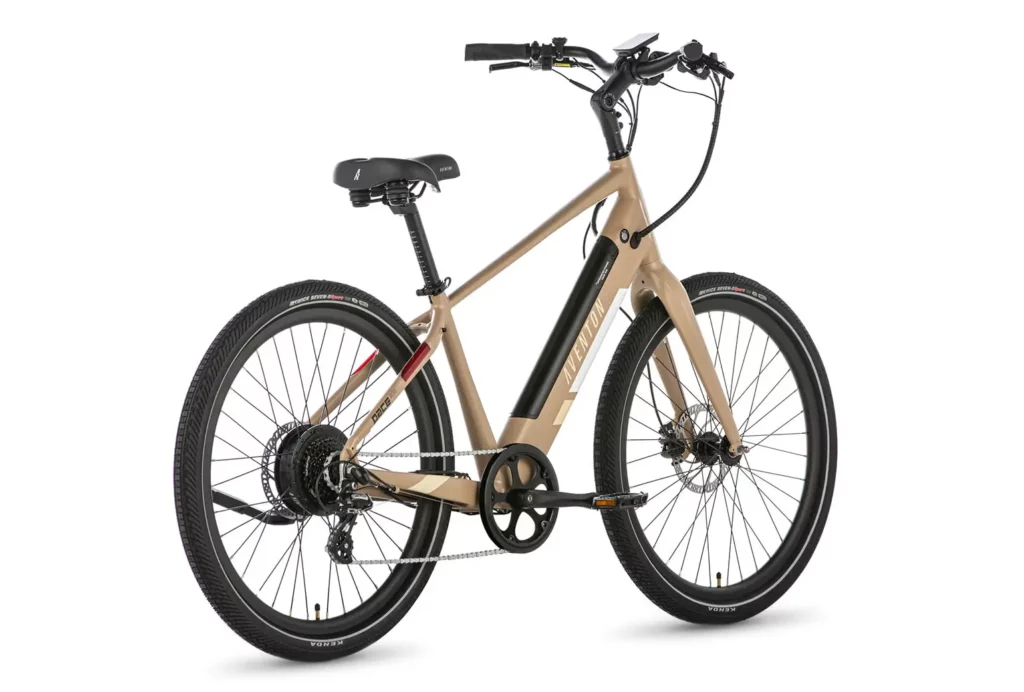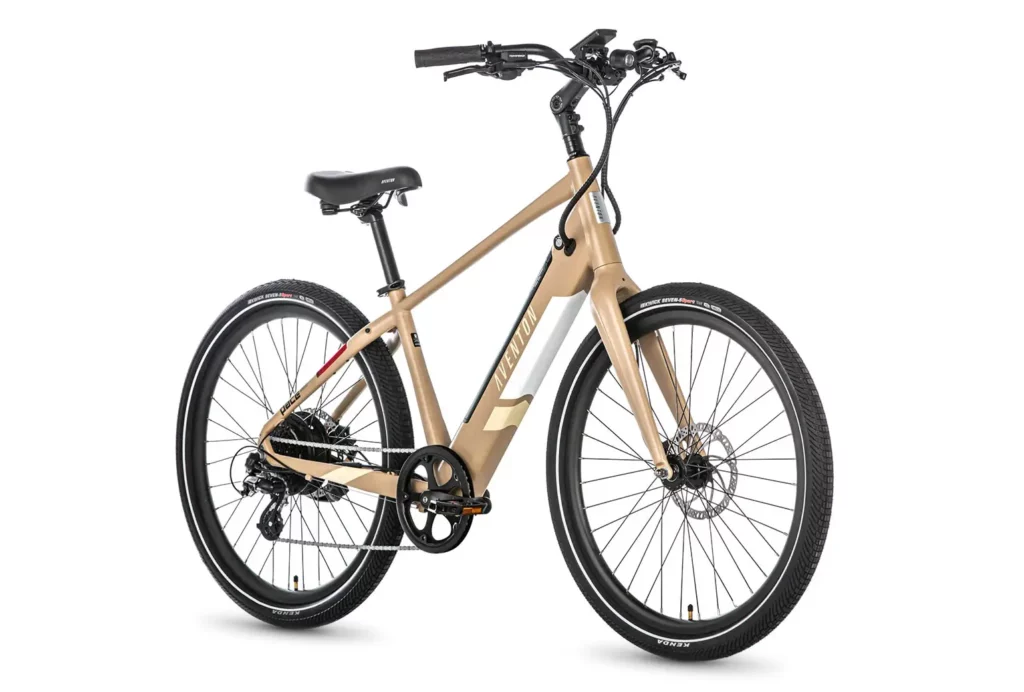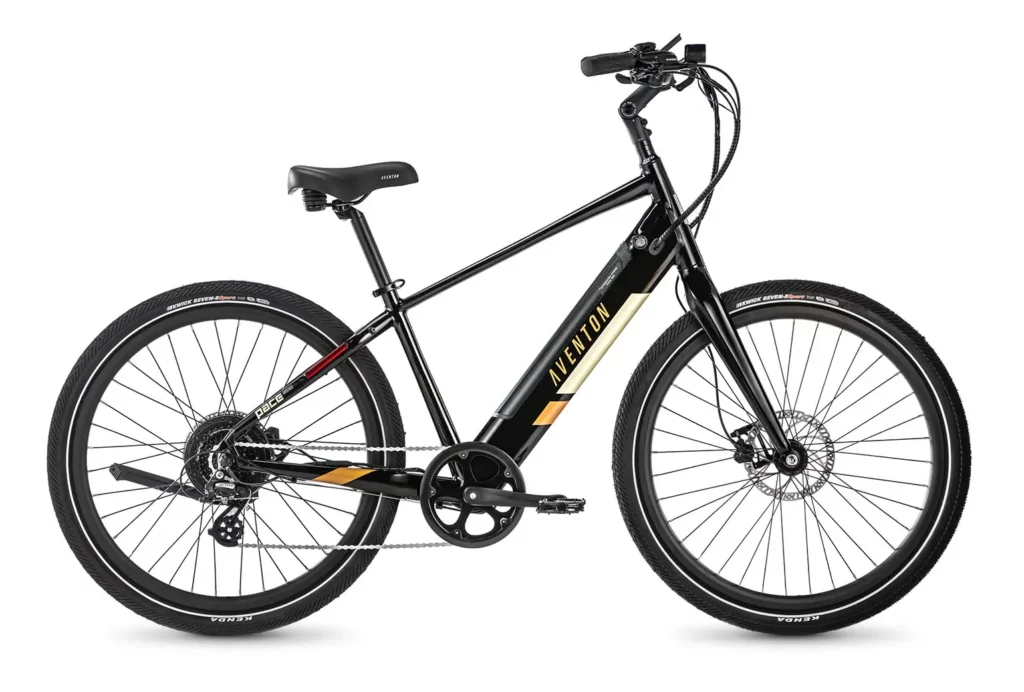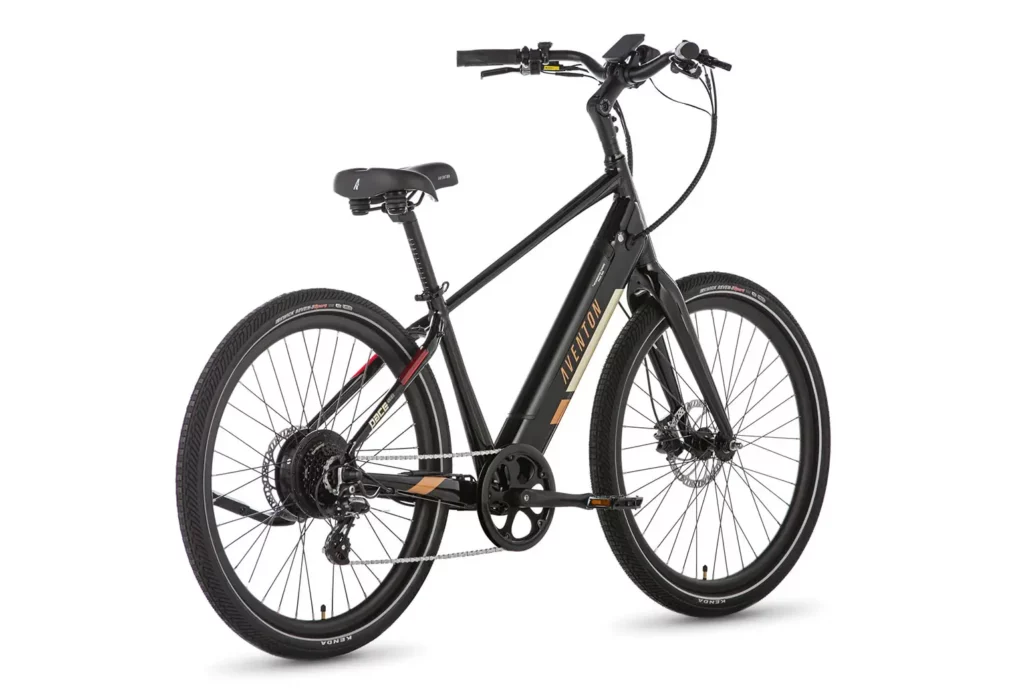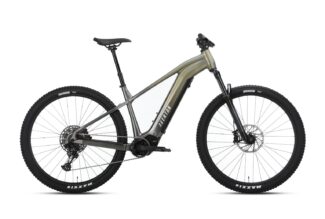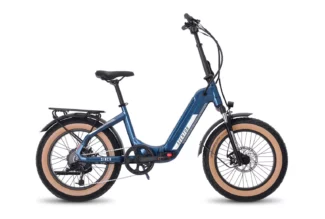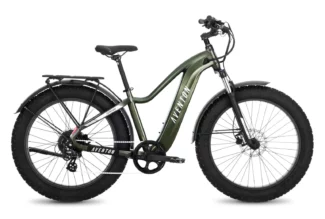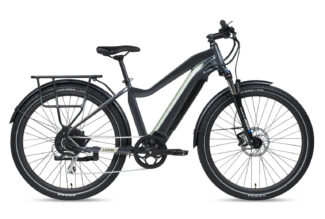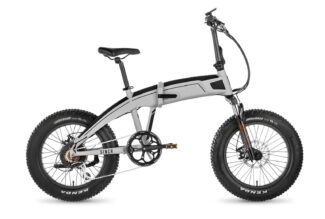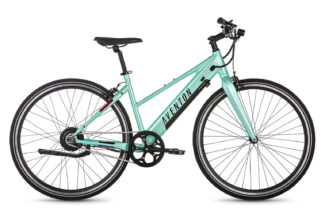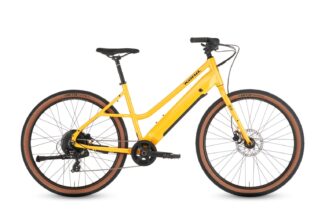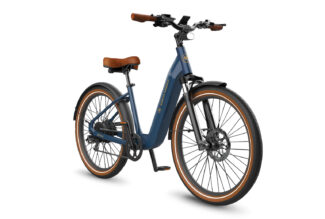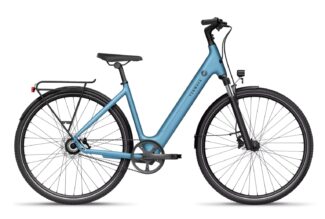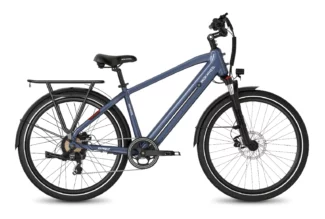E-Bike Overview
Aventon’s Pace 500 was a well-received model, and in 2022, it was updated to the Aventon Pace 500.2. Featuring integrated brake lights for safety in traffic, the Pace 500.2 is a comfortable all-rounder that’ll handle gentle off-road and paved-road use.
Comfort and safety are important design concepts in the Pace 500.2. You’re sat in an upright, cruiser position on an Italian-made Aventon Selle saddle. For better posture, this bike features an adjustable handlebar stem so you can find just the right riding position.
With mountain bike-sized, 27.5” wheels, the bike will roll over most lumps and bumps in the road comfortably and will handle mixed-use paths and even light overlanding well. The 2.2” road tires will absorb much of the unevenness in the road.
Though technically a Class 2 e-bike thanks to the throttle, it’ll get up to 28 mph on pedal assist. This isn’t quite legal based on the three-class e-bike system, but if you need to do a quick sprint, the rear-hub motor will support you all the way.
Reasons to Buy
Car and truck drivers can’t always tell if a cyclist is planning to brake for a turn or an unseen obstacle. This is why we love the integrated brake lights on the Pace 500.2 — just like a car, the brakes will light up as soon as you apply pressure. The lights also work as rear lights in low light, supporting the front, 40 lux headlight.
We also like the ability to adjust the stem to your ideal riding position — unique among Aventon e-bikes, it helps you adjust your riding position perfectly.
Things to Consider
Even though riding on pedal assist over 20 mph isn’t legal in some states, the pedal assist speed limiter cutting out at 28 mph isn’t great with the smallest cog on the cassette. With 12 teeth, to get to 28 mph, you’ll be pedaling at a very high cadence. Perhaps if Aventon is to develop the Pace to a third edition, it might include a 10-tooth “turbo” cog on the cassette.
